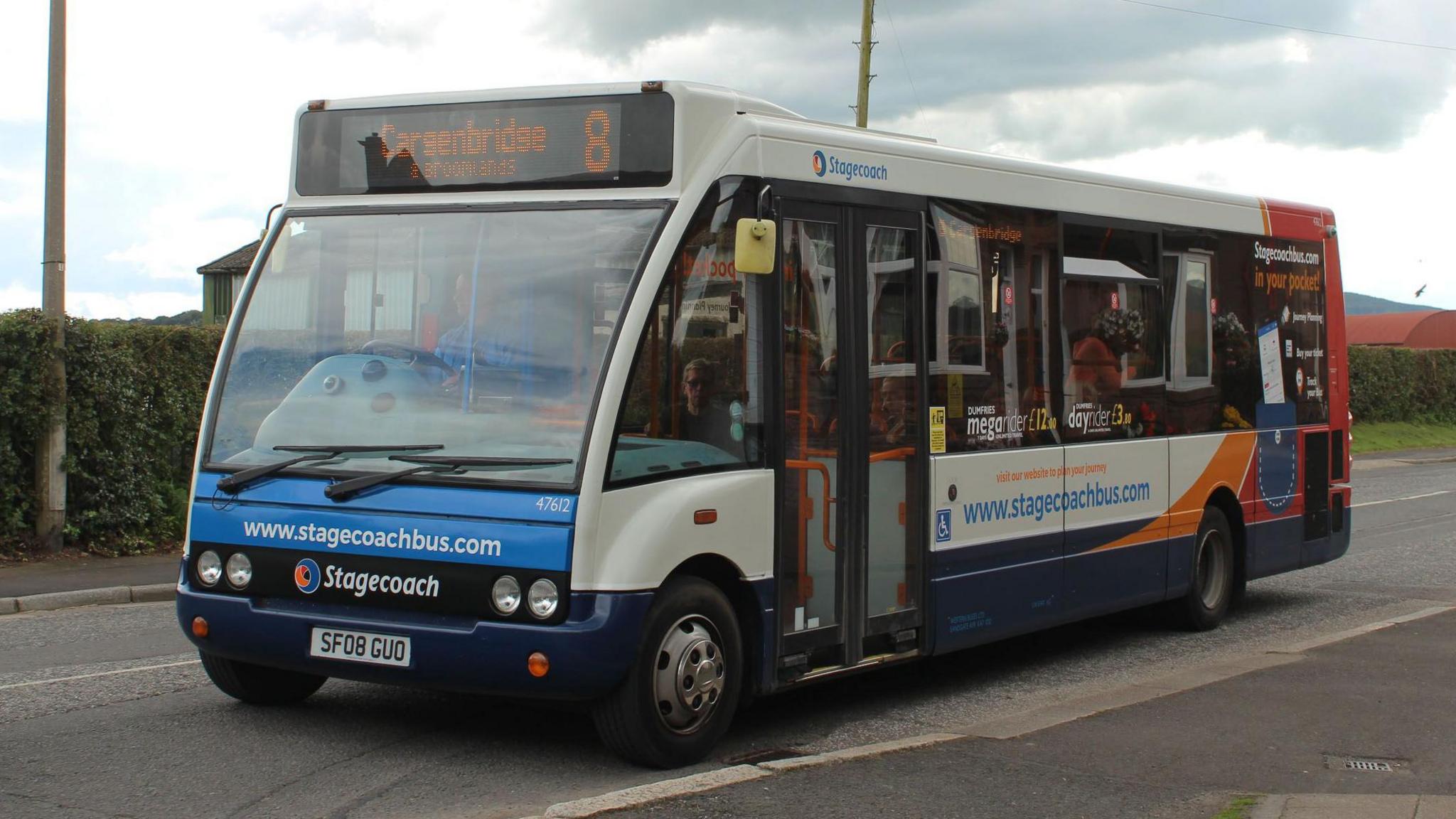Stranded? Last bus home leaves five minutes after first one arrives
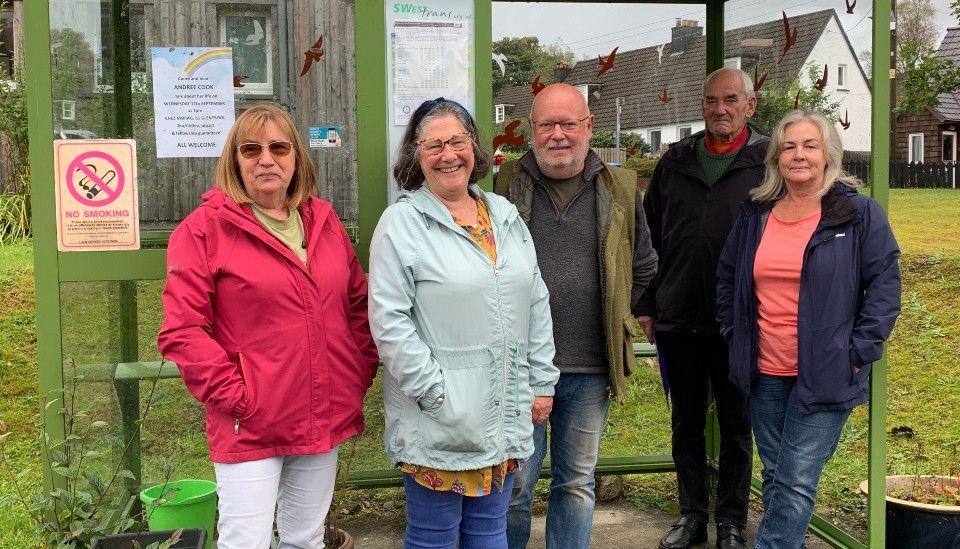
Residents of the Glentrool area say the new bus service for the village has left them feeling isolated
- Published
Residents in rural southern Scotland have described a new bus timetable for their village as "utterly ridiculous".
Among the issues they have highlighted is that the last bus home to Glentrool on a Saturday from nearby Newton Stewart leaves just five minutes after the first one arrives.
It comes after Stagecoach effectively quit the region last month and new contracts started on 7 August.
Dumfries and Galloway Council said it recognised the issues in the area and has launched a campaign to look at ways of improving services.

The problems surfaced after the end of a contract wrangle with Stagecoach which saw it end almost all its services in Dumfries and Galloway.
The bus operator said it could not agree conditions attached to the new deals which the local authority said were "industry-standard".
New contracts were put in place for the vast majority of services - run by other operators or the council itself - from 7 August.
A number of bus users across the region contacted Your Voice Your BBC News to highlight lost services, problems getting to school or work and other timetable problems.
However, residents in Glentrool got in touch to say the new timetable has left them feeling cut off compared with the previous one.
On a Saturday, the first bus to Newton Stewart gets in at 11:30 and the last one back leaves at 11:35. There used to be return services until 17:20.
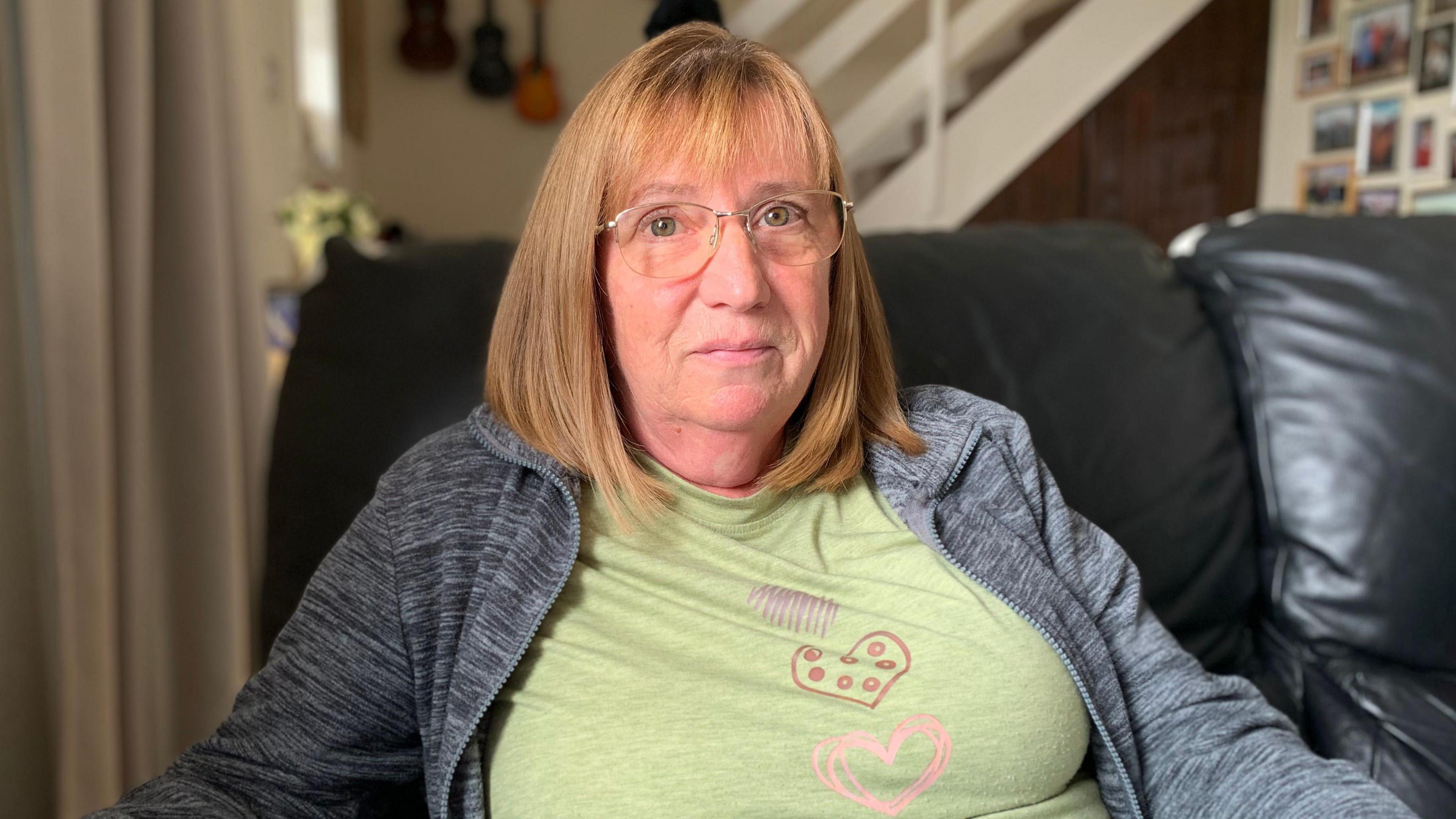
Jayne Mee said the impact was particularly great in a village with a lot of elderly residents
"Our village is quite remote and a lot of our residents are elderly - some don't drive," said Glentrool resident Jayne Mee.
"We all rely on the bus service in one way or another - to get to appointments, to get to the shops, to get to work, or just to get out."
She said the new timetable - split between school days and non-school days - did not work.
"On non-school days we simply cannot use the service to Newton Stewart because the last bus back is five minutes after the first bus in - utterly ridiculous," she said.
"This has caused a lot of upset and inconvenience to our residents."
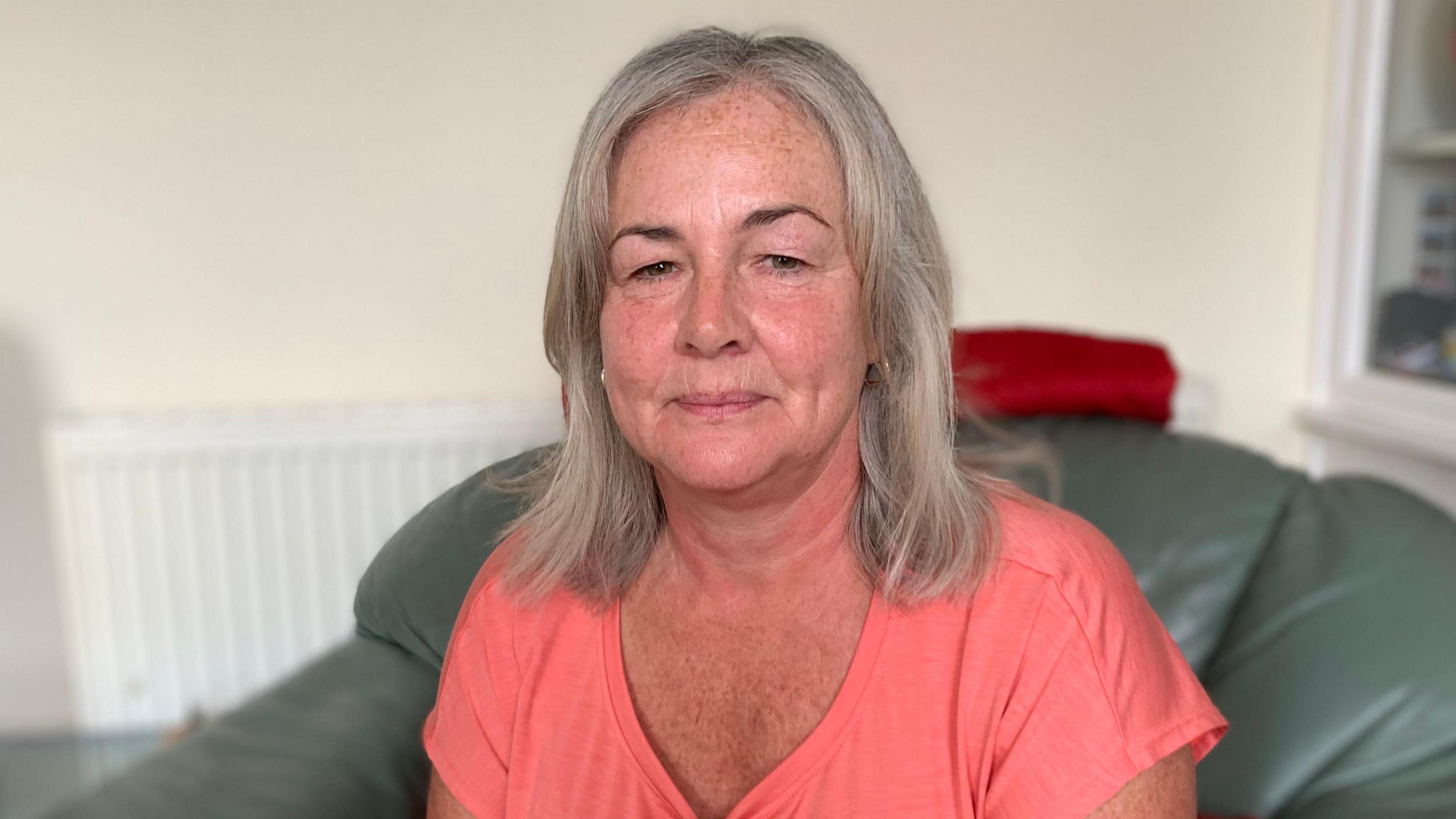
The issues are being felt beyond Glentrool, according to Susan Hutton
Susan Hutton retired last year and now volunteers in Newton Stewart visiting nursing homes and is worried the change will have an impact on the wider community.
"We are stranded, there's no doubt about it. It's a beautiful place and we welcome people coming up here and it's great, but we are stranded if there's no bus," she said.
"We say hello on the bus in the morning, you know, it's massive - it's a massive thing to people and we're trying to stop loneliness in the community - this is not helping at all.
"There's chatter on the bus on the way in in the morning, there's chatter on the way back - which doesn't seem a lot when you're perhaps in a working environment where you see people all day - but there's more people that don't."
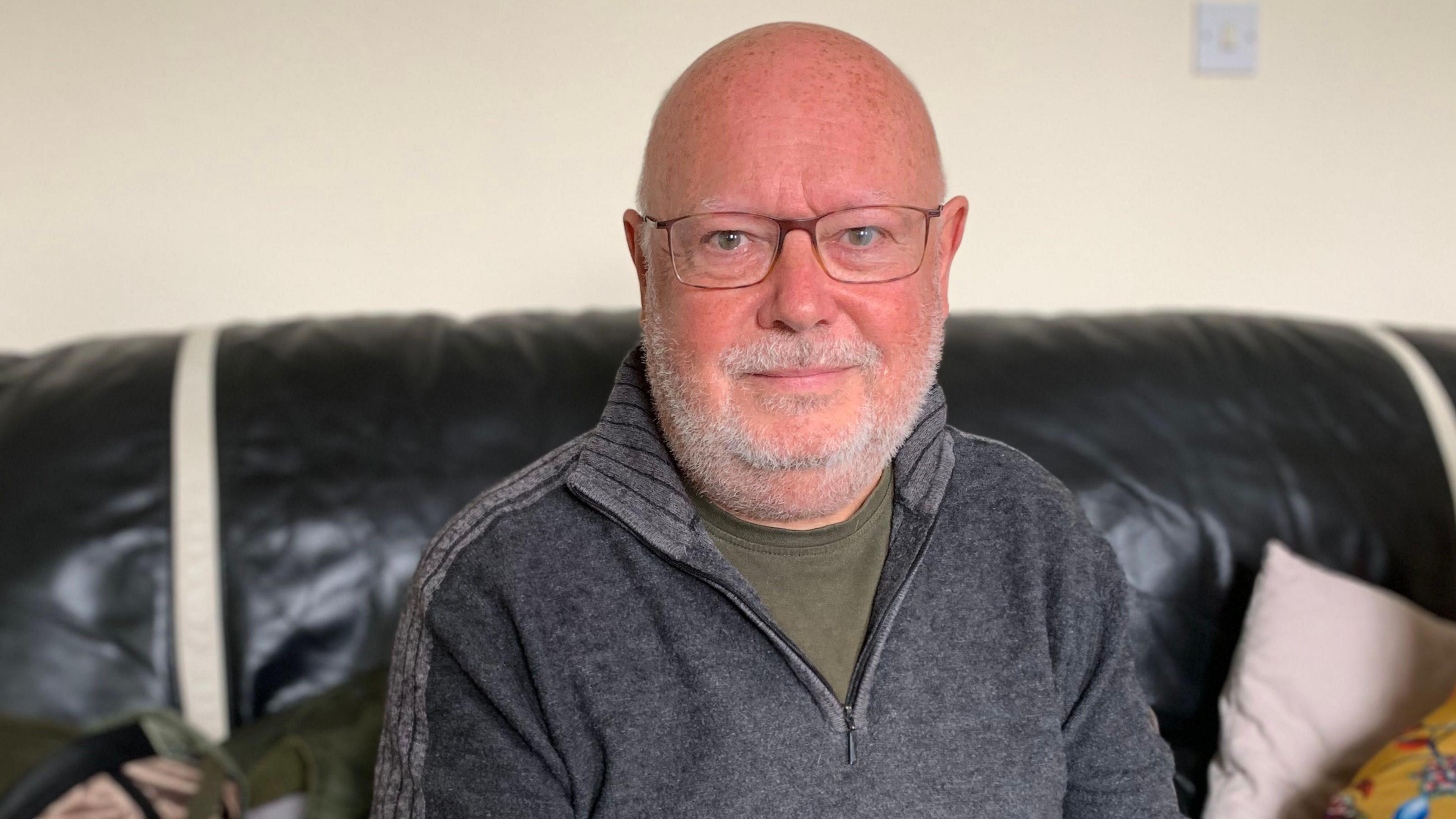
Andy Smith said he missed the socialising opportunities the previous bus service had offered
Andy Smith said the old service had been "very useful" and he mainly used it for socialising in Newton Stewart.
"There were a couple of bars on the main street that were beneficiaries financially of us getting in there and we could use a bus home - that bus has now disappeared," he said.
"We can still get into town - not at the same time - but we'd not have a bus home at all.
"We used to have the 17:20 but that's no longer run, so no access to a bus service for getting home - that's our biggest problem. To me it's a loss of the socialising experience."
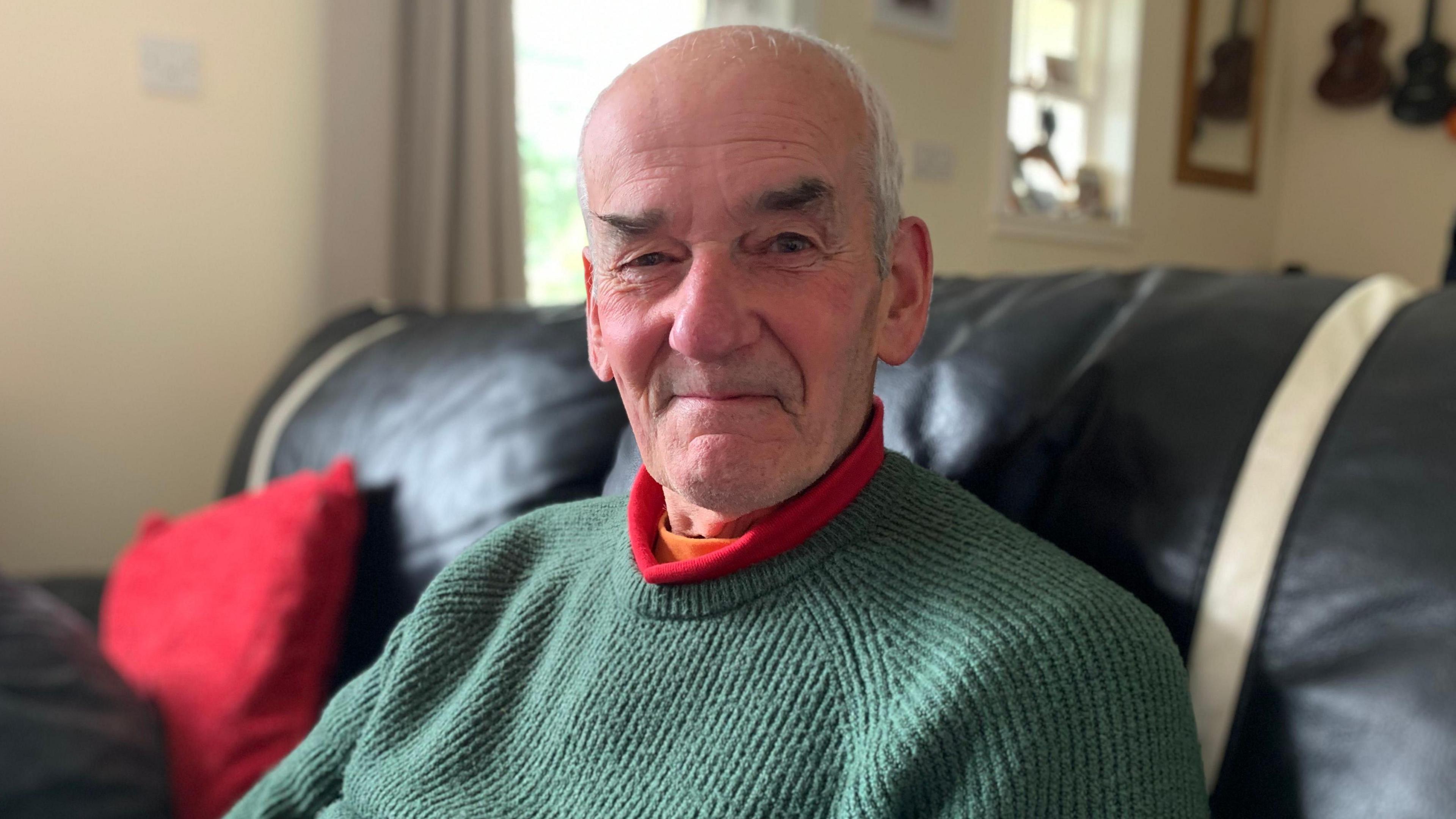
Andy Dowell said his rail card was virtually redundant as services no longer linked up between bus and train times
Andy Dowell has lived in the village for more than 50 years and does not drive.
He used to use the service to go shopping and on rail trips from Girvan which he said was no longer possible.
"I've got a rail pass here which I renewed on 14 July just before this coming and I can't use it - I can't go on the train, I can't get home," he said.
"So that's redundant now, just about."
He said it cost about £15 for a taxi which would easily start to mount up.
"It's just ruined it, I'm sorry, but they have," he added.
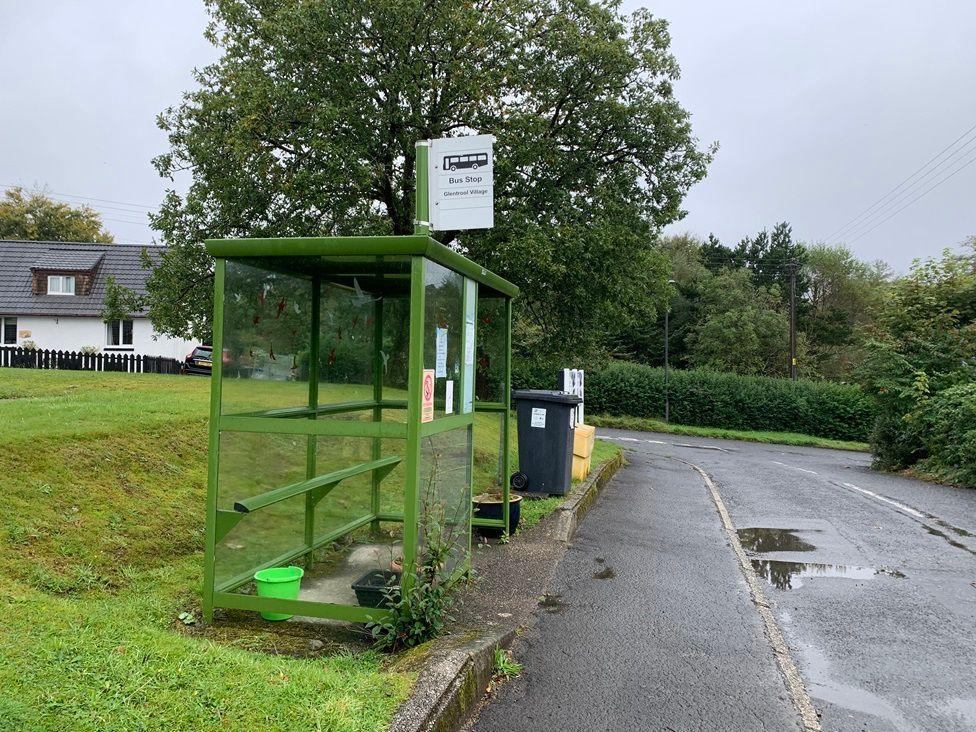
The bus stop is in the heart of the village
A statement from Dumfries and Galloway Council and transport agency SWestrans said it recognised the concerns in Glentrool - particularly outside of school term times and on Saturdays.
It said the new bus network had seen 45 long-term contracts awarded with an investment of £2.66m in providing "reliable public transport".
"Without this investment, and without DGC Buses stepping in to run services throughout Wigtownshire as operator of last resort, this part of the region was at risk of having no services running at all," it said.
The council said it understood the timetable might not meet the needs of all residents but it had been implemented in response to low passenger numbers.
It has launched a campaign to gather feedback, external on how to improve services and thanked people for their patience as it worked to "refine the network".

Get in touch
What stories would you like BBC News to cover from the south of Scotland?
Related topics
- Published9 September
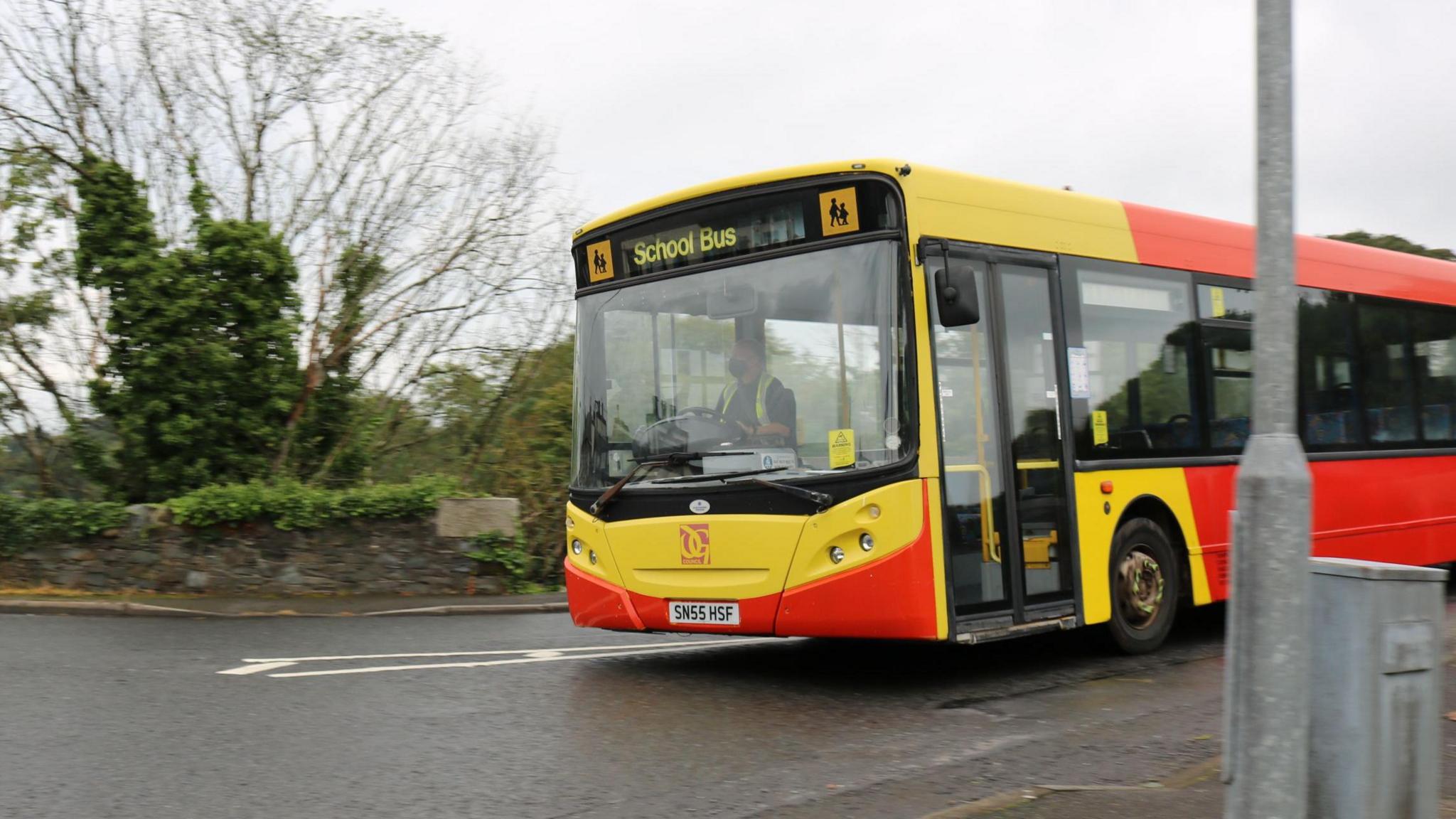
- Published19 June
